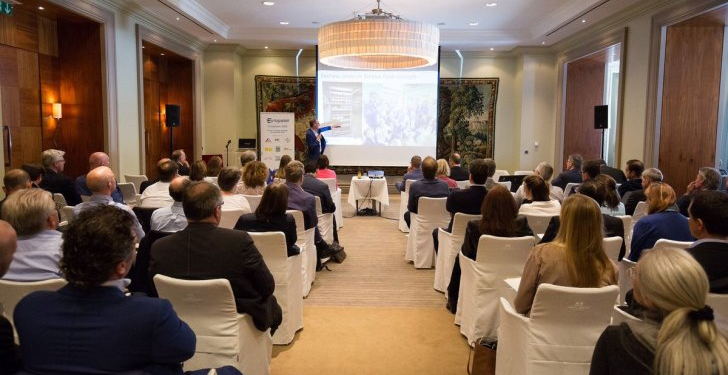Last Friday 4 May, the European potato community gathered in Brussels for the Europatat Congress 2018.
Under the slogan “Potatoes: a healthy, sustainable and responsible sector”, the annual event focused on the many assets of the sector in the areas of health, nutrition, sustainability and social corporate responsibility, and how they feed into the Sustainable Development Goals adopted by the United Nations.
The keynote speaker in the morning session, digital strategist and reputation management specialistChristophe Ginisty, gave to the participants an insight about social media trends and the most looked after consumers, known as millennials: “Try to educate, partner and listen to your audience” he highlighted. He also pointed out the need for associations of diversifying messages on the different social media platforms and the role of ensuring that people are still “critical” thinking.
Gilles Fontaine, new Europatat President, and Jos Muyshondt, former Europatat President, during the Gala DinnerOther notable speakers in the morning included Tania Santivañez, Regional Agricultural Officer at the FAO Regional Office for Europe and Central Asia, who spoke about the contribution of potatoes to food security and the reduction of poverty in developing countries and called for building strategic alliances to meet the Sustainable Development Goal number 14, “responsible consumption and production”.
Toine Timmermans, Coordinator of the REFRESH Program, warned the audience about the need for potato companies to include food security and the fight against food waste as part of their business model.
Closing the session Health & sustainability in the potato sector go hand in hand, Loes Neven, from the Flemish Institute for Healthy Living (VIGeZ), presented the new inverted food pyramid which demonstrates the multiple health benefits of potatoes.
The afternoon session, People and Community at the cornerstone of the potato sector, was opened by Tine Delva, Policy Adviser at the Secretariat-General of the European Commission in charge of the United Nations 2030 Agenda for Sustainable Development.
She welcomed the focus put this year by the Europatat Congress on the Sustainable Development Goals and called on private companies to act and to invest on a sustainable production model.
Lastly, three case studies were presented by Jolanda Soons-Dings(LambWeston Meijer), Gilles Fontaine (Desmazières) and Arnaud Delacour (UNPT) on how potato processors, traders and producers are already taking the lead in the key areas of health, sustainability and responsibility of the business.
Closing the Europatat Congress 2018, Michael Scannell, Director for the Food Chain – Stakeholder and International Relations in the Directorate General for Health and Food Safety of the European Commission, highlighted the good position in which the potato sector is situated in relation with different food safety matters: “You shouldn’t hide the high values and strengthens of the potato sector!” he concluded.
With more than 90 participants from 21 different countries, the Europatat Congress 2018 and side events have received an extremely positive feedback, remarking the high quality of the speakers and their refreshing and inspiring messages.







